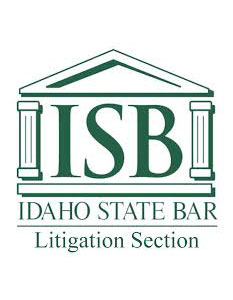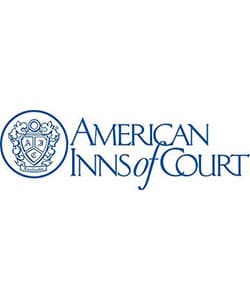Traumatic brain injuries are among the most serious injuries one can suffer. They occur when an external force, such as a blow or jolt to the head, disrupts the normal function of the brain. The severity of a traumatic brain injury can range from mild, often referred to as a concussion, to severe, which can result in long-term complications or even death. The impact on one’s life can be profound, affecting physical abilities, cognitive functions, and emotional well-being. Given the critical nature of these injuries, seeking immediate medical attention is paramount. Delays in treatment can lead to worsening symptoms and potentially irreversible damage. Understanding the importance of prompt medical care and the potential consequences of a traumatic brain injury is essential for anyone who has suffered such an injury or knows someone who has.
Recognizing the Signs and Symptoms of Traumatic Brain Injuries
One of the first steps in addressing a traumatic brain injury is recognizing the signs and symptoms. These can vary widely depending on the severity of the injury and the individual affected. Common symptoms include headaches, dizziness, confusion, and difficulty concentrating. In more severe cases, symptoms may include loss of consciousness, seizures, and profound confusion. It’s important to note that symptoms can appear immediately following the injury or may develop hours or even days later. This delayed onset can be particularly dangerous, as individuals may not realize the severity of their condition and may not seek the necessary medical attention. Awareness of these symptoms is crucial for timely intervention. If you or someone you know experiences any of these symptoms following a head injury, it is vital to seek medical care immediately.
The Critical Window for Medical Intervention
Time is of the essence when it comes to treating traumatic brain injuries. The first few hours after the injury are critical for assessing the extent of the damage and implementing treatment to prevent further injury. During this period, medical professionals can perform diagnostic tests such as CT scans or MRIs to determine the severity of the injury and identify any internal bleeding or swelling. Early intervention can significantly improve the prognosis and reduce the risk of long-term complications. For example, medications may be administered to control symptoms such as seizures or to reduce swelling in the brain. In some cases, surgery may be required to remove blood clots or repair skull fractures. Prompt medical attention not only addresses immediate concerns but also sets the stage for a more effective recovery process.
Potential Complications of Delayed Treatment
Delaying medical treatment for a traumatic brain injury can lead to a host of complications. Without prompt intervention, swelling in the brain can increase, leading to increased intracranial pressure. This can cause further damage to brain tissues and result in more severe cognitive and physical impairments. Additionally, untreated brain injuries can lead to the development of chronic conditions such as post-concussion syndrome, which can cause persistent headaches, dizziness, and cognitive difficulties for months or even years after the initial injury. In the most severe cases, delayed treatment can result in permanent disability or death. Understanding these potential complications underscores the importance of seeking immediate medical care. Early treatment can mitigate these risks and improve the chances of a successful recovery.
The Role of Medical Professionals in Traumatic Brain Injury Treatment
Medical professionals play a crucial role in the diagnosis and treatment of traumatic brain injuries. Their expertise and experience are essential for accurately assessing the extent of the injury and developing an appropriate treatment plan. In the initial stages, emergency room physicians and neurologists are often involved in diagnosing and stabilizing the patient. They may order imaging tests, monitor vital signs, and provide medications to manage symptoms. As the patient progresses, a multidisciplinary team including physical therapists, occupational therapists, and speech therapists may become involved in the rehabilitation process. This team approach ensures that all aspects of the patient’s recovery are addressed, from physical function to cognitive abilities and emotional well-being. The comprehensive care provided by medical professionals is integral to the recovery process and can significantly impact the patient’s long-term outcomes.
Rehabilitation and Long-Term Recovery
Recovery from a traumatic brain injury often involves a lengthy rehabilitation process. Depending on the severity of the injury, rehabilitation may include physical therapy to improve mobility and strength, occupational therapy to help with daily activities, and speech therapy to address communication difficulties. Cognitive rehabilitation is also a key component, focusing on improving memory, attention, and problem-solving skills. This comprehensive approach to rehabilitation aims to restore as much function as possible and help the individual regain independence. It’s important to recognize that recovery is often a gradual process, and progress may be slow. Patience and perseverance are essential, both for the individual recovering from the injury and for their family and caregivers. Long-term support and follow-up care are also crucial for managing any ongoing symptoms and addressing new challenges that may arise during the recovery process.
The Emotional Impact of Traumatic Brain Injuries
In addition to physical and cognitive challenges, traumatic brain injuries can have a significant emotional impact. Individuals may experience a range of emotions, including frustration, anger, and depression. These emotional responses are often a result of the injury itself, as well as the challenges associated with recovery and the changes in daily life. Support from family, friends, and mental health professionals can be invaluable during this time. Counseling or therapy can help individuals cope with their emotions and develop strategies for managing stress and anxiety. It’s also important to recognize the impact on family members and caregivers, who may experience their own emotional challenges as they support their loved one through the recovery process. Addressing the emotional impact of a traumatic brain injury is a critical component of comprehensive care and can significantly influence overall recovery and quality of life.
Rules of a Personal Injury Claim Choosing a Personal Injury AttorneyRelated Videos
Legal Considerations and Seeking Compensation
For many individuals who suffer a traumatic brain injury, there may be legal considerations to address, particularly if the injury was the result of an accident or another party’s negligence. Seeking legal advice can help individuals understand their rights and options for seeking compensation. Compensation may be available to cover medical expenses, rehabilitation costs, lost wages, and other related expenses. In some cases, compensation may also be awarded for pain and suffering or loss of quality of life. Legal proceedings can be complex and time-consuming, so it’s important to seek advice from legal professionals who are experienced in handling traumatic brain injury cases. They can provide guidance on the best course of action and help navigate the legal process. Pursuing compensation can provide financial support during the recovery process and help alleviate some of the burdens associated with a traumatic brain injury.
The Importance of Support Systems
Support systems play a vital role in the recovery process for individuals with traumatic brain injuries. Family members, friends, and caregivers provide essential emotional and practical support, helping with daily activities and providing encouragement during the rehabilitation process. Support groups and community resources can also be valuable, offering opportunities to connect with others who are experiencing similar challenges. These connections can provide a sense of community and understanding, which can be particularly important during difficult times. Building a strong support system can enhance the recovery process and contribute to a more positive outcome. It’s important to reach out for help and take advantage of available resources, both for the individual recovering from the injury and for their family and caregivers.
Verdicts & Settlements
The Role of Hepworth Holzer, LLP in Traumatic Brain Injury Cases
At Hepworth Holzer, LLP, we understand the profound impact that a traumatic brain injury can have on an individual and their family. Our team is dedicated to providing compassionate and comprehensive legal support for those who have suffered such injuries. We have extensive experience in handling traumatic brain injury cases and are committed to helping our clients navigate the legal process with confidence and ease.
Our goal is to ensure that our clients receive the compensation they deserve to cover medical expenses, rehabilitation costs, lost wages, and other related expenses. We work diligently to build a strong case and advocate for our clients’ rights, providing the support and guidance needed during this challenging time. If you or a loved one has suffered a traumatic brain injury, we encourage you to contact Hepworth Holzer, LLP.
Our team is here to help you understand your legal options and provide the support you need to move forward with your recovery. Reach out to us today to schedule a consultation and take the first step toward securing the compensation and justice you deserve.










